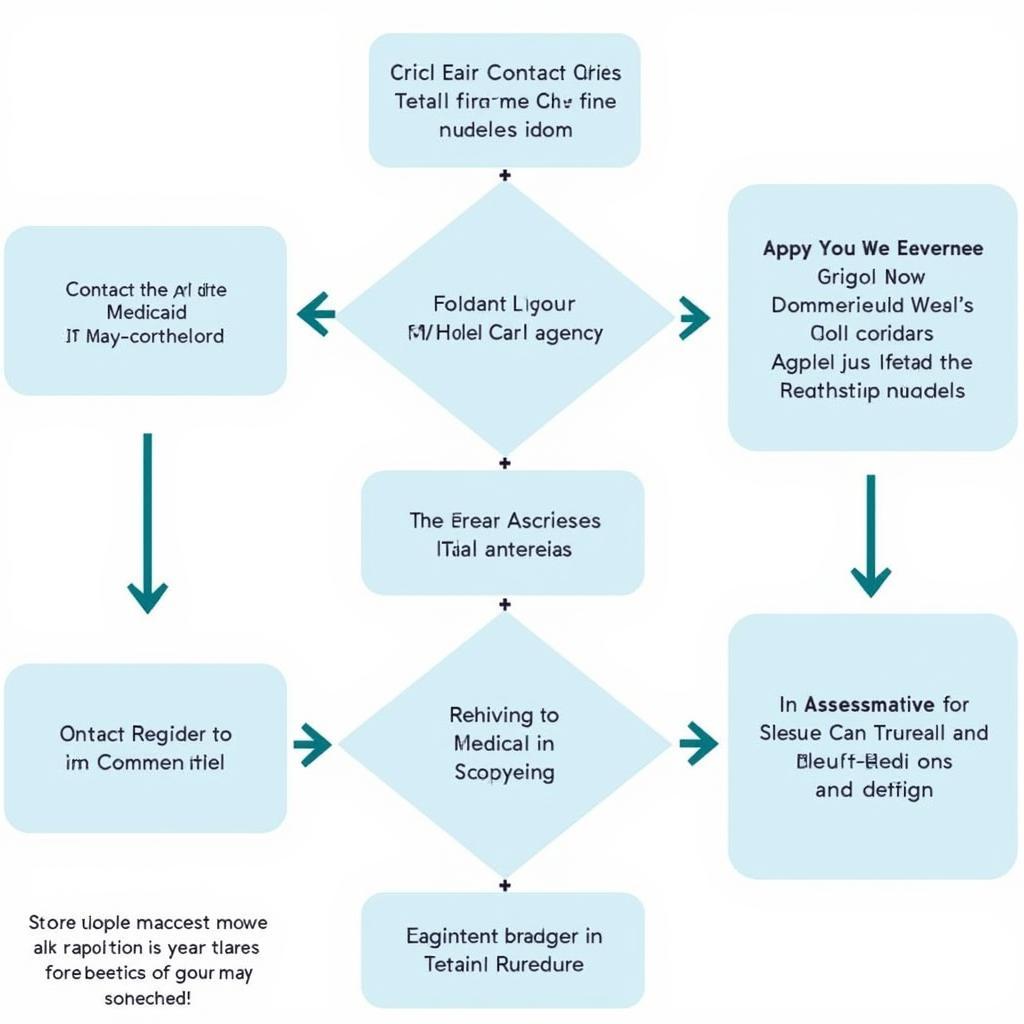Does Medicaid Pay for Home Care Services?
Navigating the complexities of healthcare coverage can be a daunting task, especially when it comes to long-term care options like home care services. Many individuals requiring assistance with daily living activities wonder, “Does Medicaid Pay For Home Care Services?” The answer, like many healthcare-related questions, is: it depends.
This comprehensive guide delves into the intricacies of Medicaid and its coverage of home care services. We’ll explore eligibility criteria, types of services covered, application procedures, and valuable insights to help you make informed decisions about your healthcare needs.
Understanding Medicaid and Home Care Services
Medicaid, a joint federal and state program, provides health coverage to millions of Americans, including eligible low-income adults, children, pregnant women, elderly adults, and individuals with disabilities. While the specific services covered by Medicaid can vary from state to state, home care services are often included as a vital component of long-term care support.
Home care services encompass a wide range of personal care and medical assistance provided to individuals in the comfort of their homes. These services aim to help individuals maintain their independence, manage their health conditions, and enhance their overall quality of life.
Eligibility for Medicaid Home Care Services
Medicaid eligibility for home care services is determined by both federal and state guidelines. Generally, individuals must meet specific criteria related to income, resources, and functional limitations to qualify for coverage.
Income Requirements: Each state sets income limits for Medicaid eligibility. These limits are typically based on the Federal Poverty Level (FPL) and can vary depending on factors such as household size and age.
Resource Limits: In addition to income, Medicaid also considers an individual’s countable assets, such as savings accounts, investments, and property. States have specific resource limits that individuals must meet to be eligible for home care coverage.
Functional Eligibility: To receive Medicaid-funded home care services, individuals must demonstrate a need for assistance with Activities of Daily Living (ADLs) or Instrumental Activities of Daily Living (IADLs) due to a physical, cognitive, or mental impairment.
Types of Home Care Services Covered by Medicaid
Medicaid coverage for home care services can vary significantly from state to state. However, common services that are often covered include:
- Personal Care Assistance: Help with bathing, dressing, toileting, grooming, and eating.
- Homemaker Services: Assistance with light housekeeping, laundry, meal preparation, and grocery shopping.
- Skilled Nursing Care: Medical services provided by a registered nurse (RN) or a licensed practical nurse (LPN), such as medication management, wound care, and vital signs monitoring.
- Home Health Aide Services: Basic health-related tasks under the supervision of a nurse, such as taking vital signs, providing medication reminders, and assisting with exercises.
- Therapy Services: Physical, occupational, and speech therapy services can be provided in the home to help individuals regain or maintain mobility, functional abilities, and communication skills.
Applying for Medicaid Home Care Services
The application process for Medicaid home care services involves contacting your state’s Medicaid agency and completing the necessary forms. You’ll need to provide documentation verifying your identity, income, resources, and medical need for home care services.
 Medicaid Application Process
Medicaid Application Process
A caseworker will be assigned to assess your eligibility and determine the type and amount of home care services you qualify for. This assessment typically involves an in-home visit to evaluate your functional limitations, living environment, and care needs.
Tips for Navigating Medicaid Home Care Services
- Contact your state’s Medicaid agency early. Don’t wait until a crisis arises to explore home care options. Early planning is crucial.
- Keep meticulous records. Maintain organized documentation of your income, expenses, medical records, and any communication with Medicaid representatives.
- Explore all available resources. Several programs and organizations offer guidance and support during the Medicaid application process.
- Advocate for your needs. Don’t hesitate to ask questions, request clarification, and advocate for your right to receive the care you need.
Conclusion
Medicaid can be a valuable resource for individuals seeking financial assistance with home care services. By understanding the eligibility criteria, types of services covered, and the application process, you can navigate the system more effectively and secure the support you need to maintain your independence and well-being in your own home.
Remember, each state has its own specific guidelines and regulations regarding Medicaid home care services. For the most accurate and up-to-date information, always refer to your state’s Medicaid agency website or contact them directly.
Do you have questions about car maintenance? We can help! CarServiceOnline is your one-stop resource for all things car-related. Check out our articles on how often should a low mileage car be serviced and how often should you service your cars ac for valuable tips and insights. For personalized assistance, contact us via WhatsApp at +1(641)206-8880 or email us at [email protected]. Our dedicated customer support team is available 24/7 to answer your questions and provide expert guidance.
